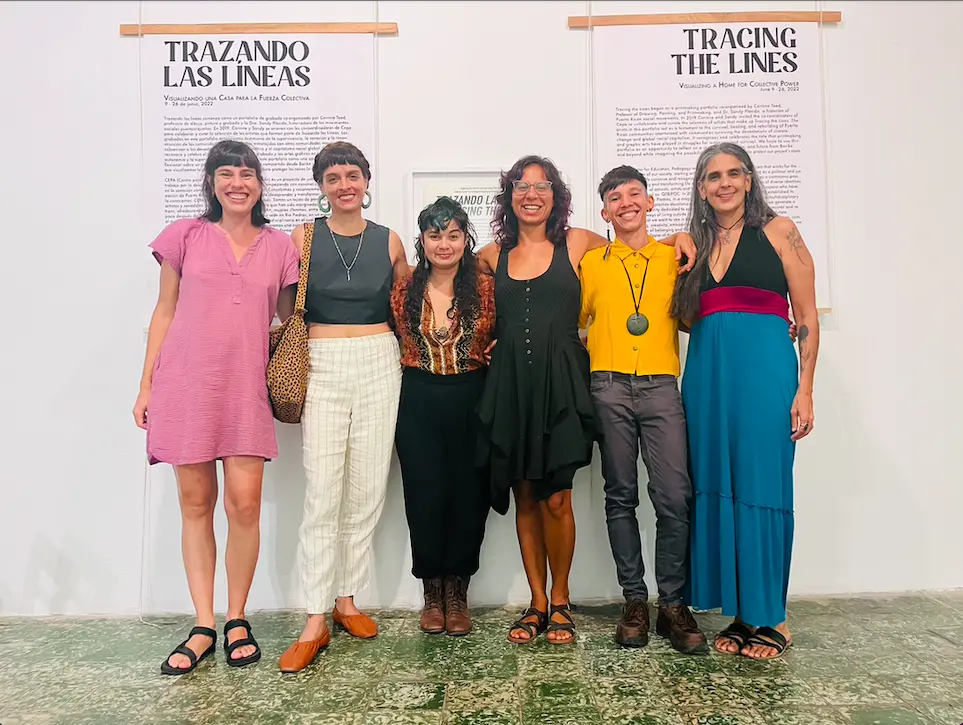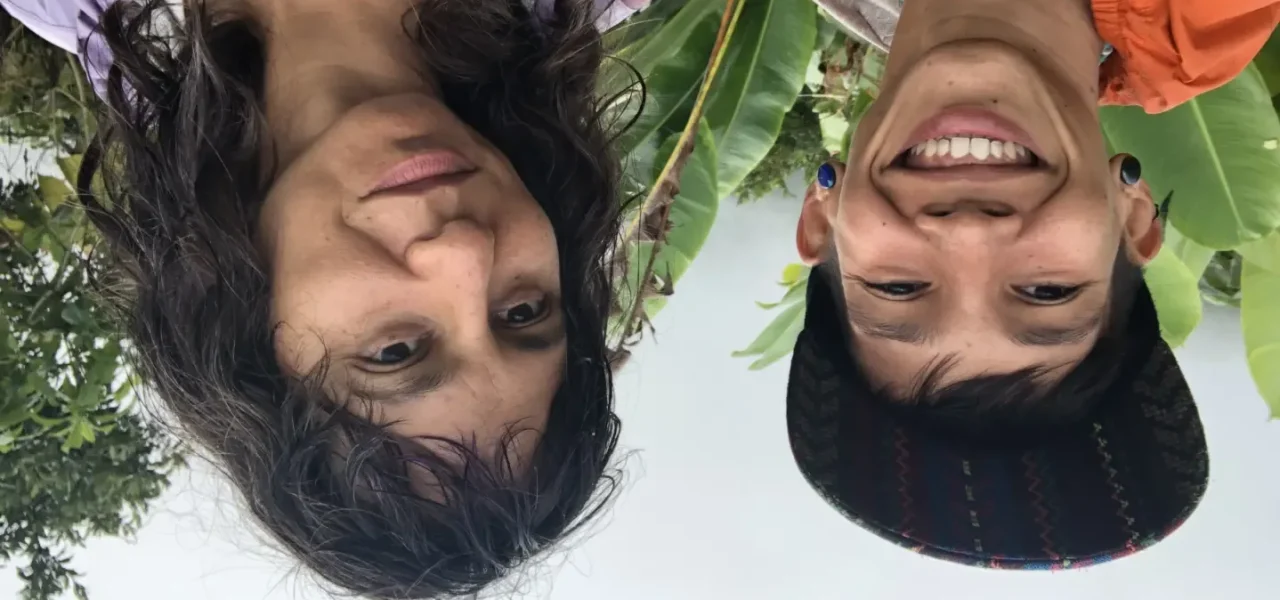June 13, 2022
Grantee Partner Spotlight: Center for Embodied Pedagogy & Action
by Melissa Rosario, PhD & Lau Pat Rodriguez Arroyo.
The Ms. Foundation is proud to support our grantee partners, who are at the forefront of organizing and creating solutions that improve people’s lives and bring us closer to achieving a true democracy. The insight and perspective they provide is invaluable. The Q&A below was generated in conversation with the co-coordinators of the Center for Embodied Pedagogy & Action (CEPA), Melissa Rosario, PhD (founder) and Lau Pat Rodriguez Arroyo. CEPA is fostering the decolonization of Puerto Rico through initiatives that support their individual and collective capacity to live in wholeness. CEPA is an Activist Collaboration & Care Fund grantee partner. What brought you to this work? Our own desires and need for healing brought us to the work of decolonizing. We each had experience in social movements and found that within our own spaces of struggle, we were reproducing the violence of the empire in small ways. We wanted to live in connection, in balance, and in harmony, and realized that the only way to truly decolonize at the baseline of our existence was in community. We have worked to transform our lives as survivors, as femmes, and as gender-nonconforming people because we needed to remember another way of being that was taken from us and our communities by colonialism, capitalism, and patriarchy. As indigiqueer folx walking a path of reclamation in times of climate catastrophe in America’s oldest colony, we live at the intersection of erasure and resilience. We know that healing is the way to live in deeper connection. How do you connect/collaborate in your community? Who are your key partners? Our key partners are our neighbors, the wider queer community in the Puerto Rican archipelago and diaspora, our collective of eight people, and the indigenous community. We form part of the Alianza Indigena Boricua en Resistencia and are also members of the Tribu Yuke based in Jayuya. We connect almost entirely through word-of-mouth because deep relationships are vital to our work. The physical space of the casa-taller (home-workshop) is where much of our work is grounded. Here we tend to plants and cultivate an urban garden, and we facilitate healing circles and praxis groups. We also host visitors who join us in a living practice aimed at fostering a solidarity economy based on the principles of redistribution, relationship building, and mutual aid. With the people who visit us from the diaspora or who live in Borike and stay with us for an extended amount of time, we actively reconnect with the earth in an urban context. We believe deeply in skillshares and host both digital and in-person offerings. We also are creators of a curriculum that mixes art, culture, and healing. What are you learning or what are you teaching? They say you teach what you most need to learn. And for us, it’s about anchoring decolonization as a daily practice. As survivors of violence and as people living somewhere where transphobia and femicidios (the intentional killing of women or girls because they are female) are so commonplace, we feel it’s vital to get beyond the binaries imposed by colonialism. Finding ways to see conflict as generative is one way we are working to get out of the binary of good/bad, which causes us to abandon one another in moments of difficulty. For us, there is no separation for us between the destruction of the earth and the destruction of our bodies and relationships. We are learning to sustain ourselves through a solidarity economy and by reconnecting with the abundance of the earth. We are learning to have difficult conversations with ease as we cultivate transformative justice practice with key partners. We are practicing caring for one another as we undergo long-term cultural shifts and deepen our ability to communicate. We are learning to tend the land as we tend to our bodies and truths. Tell us about a recent victory or something you’re proud of. Growing from a duo to a team of eight! This growth is thanks to a training that the Ms. Foundation sponsored and one of our co-coordinators was able to attend. It has brought more joy and more ease to our process and allows us to grow bigger visions for the future. Relatedly, we recently began a training and healing process with 15 people from our wider queer, femme, and trans community. We have a long-term vision of creating a network of people who are able to respond to violence and conflict and harm in a transformative way. We imagine that having a group of people able to anchor the community accountability process will likewise help us eradicate violence and abuse from our systems, anchoring our dream of living in freedom, deeply connected to our sovereignty and togetherness. What do you need from funders or how can people help? We recently learned that the owner of the space we have been tending to since Hurricane Maria is hoping to sell the building. We have the opportunity to secure a permanent home base for our work and add a much needed space to the larger movement infrastructure, where folks can practice healing in community. Funders, please contact us to discuss strategies for helping us meet our overall goal of raising $250k in the next five years. Anyone can help us secure the down payment of $50k by November 1 by donating now to our campaign at www.givebutter.com/cepa. This will help us ensure that this space stays in the hands of Puerto Ricans at a time when we’re seeing massive displacement and a rise in the cost of living. Debt adjustments and special incentives have brought wealthy Americans to the island, pushing out Puerto Ricans. Help us do it without the banks. Help us to show others there is a way to stay here with the support of the community. Long term, this will also help us to ensure lasting housing for at least five people in the QTBIPOC community. Help us ensure a future for this work. What gives you hope? Lau: Each time we are connected with someone who resonates with this work, I am hopeful. It gives me hope that as we are doing the work, we are collectively empowering one another and regenerating our capacity to carry on this work long term. It gives me hope that we are coming together in these times and are committing ourselves to work through conflict in a generative way. Meli: The earth gives me hope. I recently heard that the ozone is regenerating itself. Can you imagine the power? The sweet water of the river gives me hope. The ocean that keeps flowing in waves in spite of everything gives me hope. A cool morning breeze, the fire to keep going. Knowing abundance in the community gives me hope. Reclaiming gives me hope.

